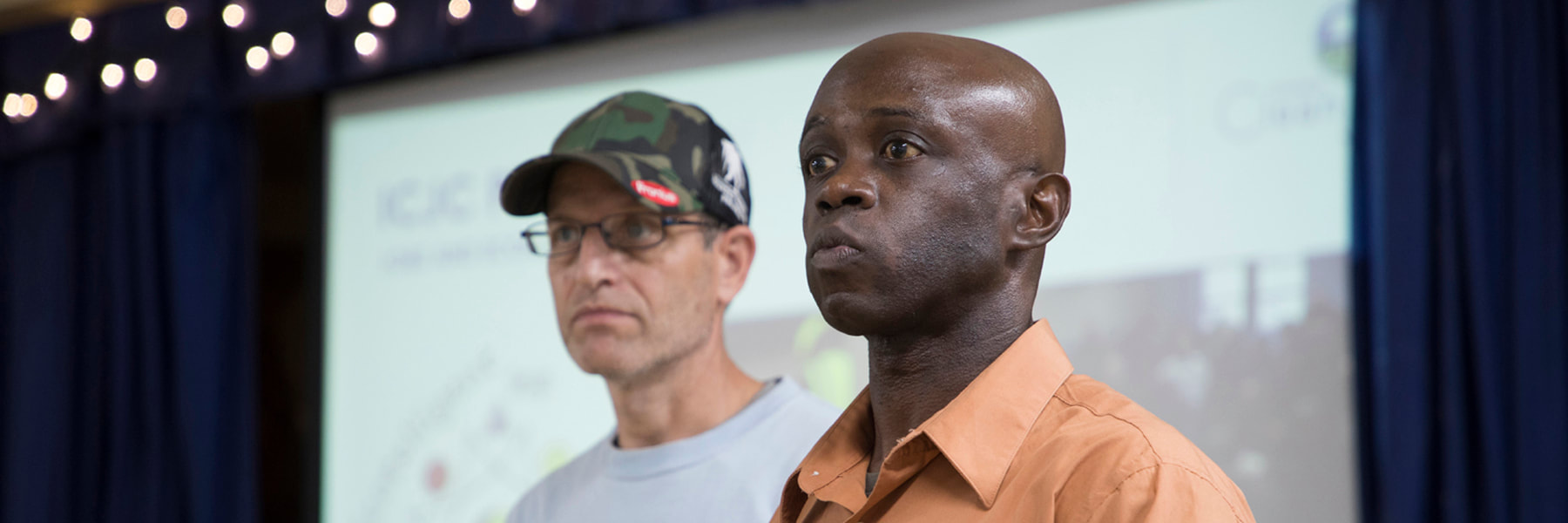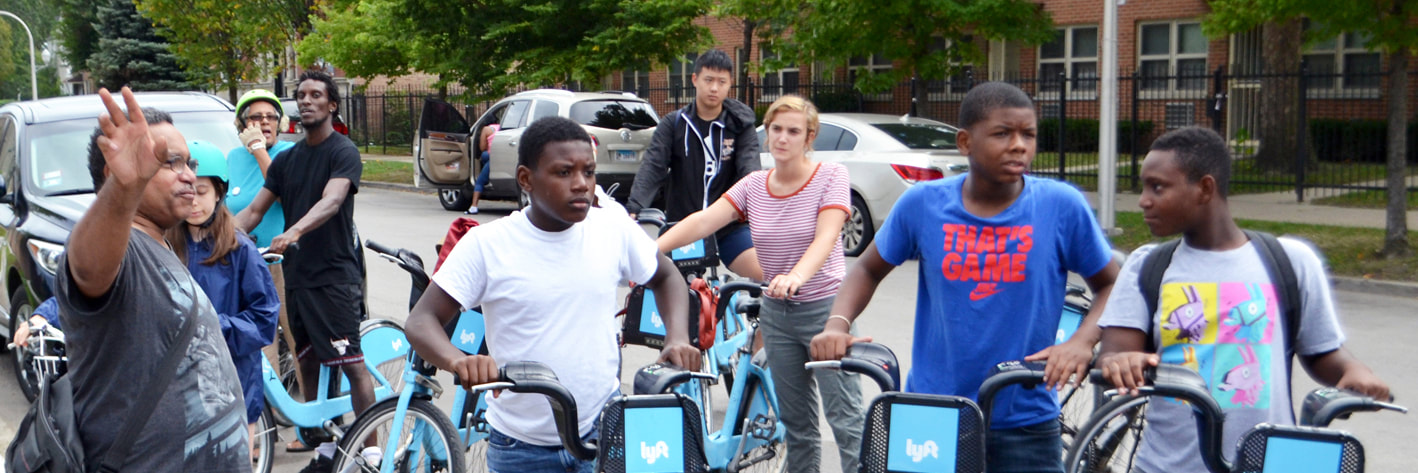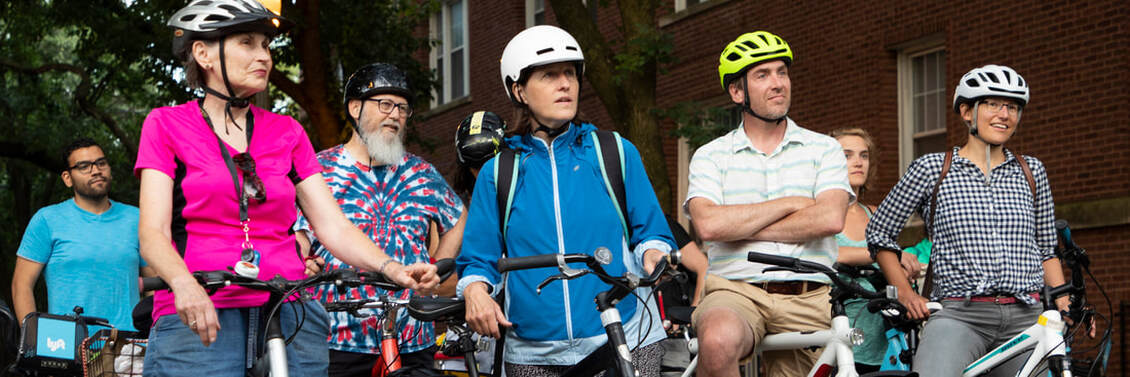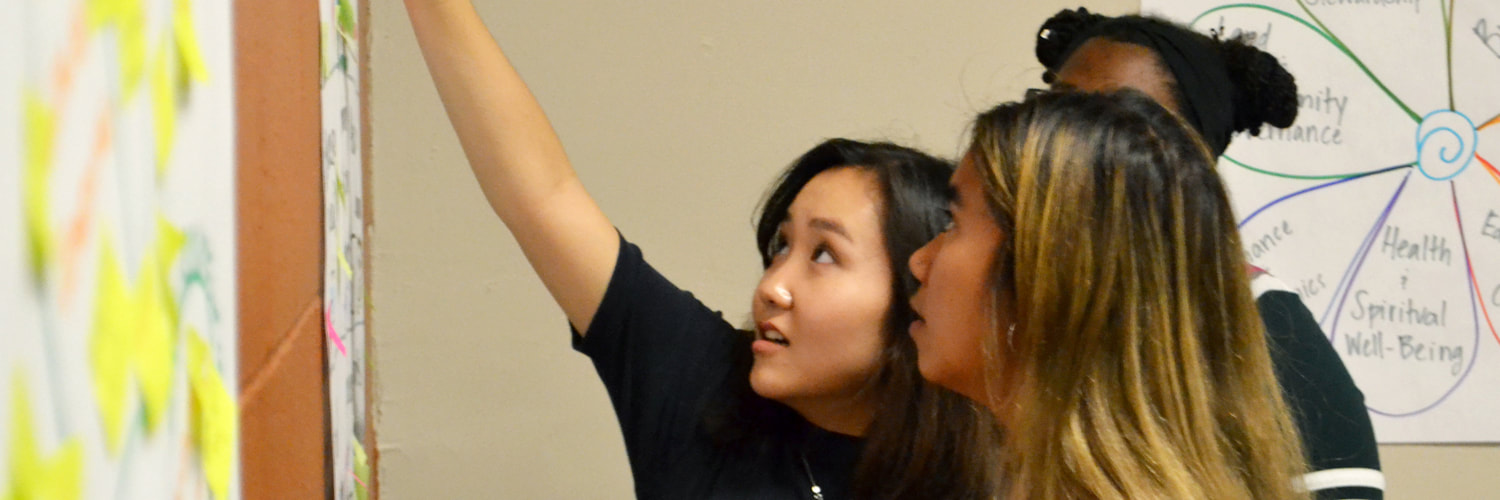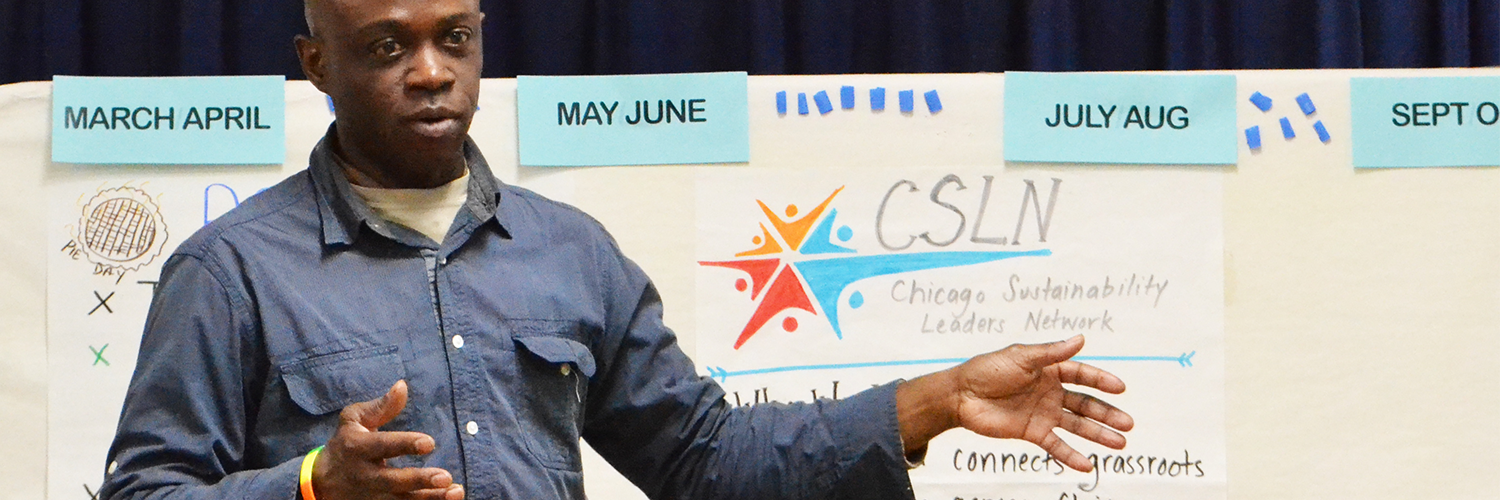|
In 1995, Alvyn Walker was sitting in a Giordano’s restaurant on Michigan Avenue in downtown Chicago, engaged with friends in a conversation that would influence the rest of his life. “We started to brainstorm about what type of a goal would you set for yourself and how do you think that particular goal would be achieved,” he says.
“I had a vision that we needed to stop responding with force. We need to build coalitions of people and be able to converge on problems using a more thoughtful approach to solving problems.” “What brought you here tonight?” asked ICA Program Manager Caitlin Sarro of the group that gathered near the dusk of September 26th at the Gold Dome Fieldhouse in Garfield Park. This simple question carries the powerful assumption that each person has their own reason for coming to a Chicago Sustainability Leaders Network (CSLN) meeting. Beyond those reasons are deeper values and motivations, the interaction of which has helped CSLN remain a dynamic, emergent network for nearly six years.
“Bronzeville is an extraordinary community filled with precious cultural artifacts and historic locations where many of our community’s best and brightest have walked, talked, laughed, and cried,” read the program guide created by Bronzeville Alliance for the second event in this year’s Nourish (comm)Unity series. On the afternoon of September 21st, participants on the FRESH Bronzeville environmental tour not only walked, talked, and laughed: they also biked.
Where Simonds Drive, Montrose Avenue, and Marine Harbor Drive meet, so did participants on August 15th for Bikes, Birds, and Butterflies, a bike ride that explored immersive natural areas and plants thriving in Chicago’s Uptown community. Most of the participants rolled up on their own bikes, while the rest took advantage of loaner bikes provided by Divvy.
In the midst of a Chicago heat wave, people tend to need a good reason to go out on a weeknight. Some who attended the Chicago Sustainability Leaders Network (CSLN) meeting last month were drawn to the location, easily accessible in the heart of downtown Chicago. Others came to visit Openlands, among the oldest metropolitan conservation organizations in the nation. Newcomers were drawn by the appeal of meeting like-minded people, while old friends affectionately refer to CSLN summer meetings as “the fun ones” for their focus on celebration and relationship-building.
The first group was large, a cohort of over 60 students from Engage Chicago, a summer field study program offered by Northwestern University. The second group traveled far, a delegation of four senior officers from Singapore nonprofit Yayasan Mendaki. Both groups came to ICA this July to learn about the organizing model that underpins our work.
When Terry Bergdall returned to ICA-USA to serve as CEO in 2009, the organization was in the midst of a missional shift to meet the emerging climate crisis. The City of Chicago was also attempting to respond to climate change, but the government’s approach was to convene expert consultants who crafted environmental programs, and then tried to “sell” them to Chicagoans. ICA believed that this top-down approach to policy-making perpetuated the mentality of treating residents as consumers and in 2011 launched the accelerate77 project to instead show that residents as producers.
The first Chicago Sustainability Leaders Network (CSLN) meeting of the year carried a sense of new energy with a host of familiar names and faces among the 24 who gathered at Windsor Park Evangelical Lutheran Church.
Our host, Alvyn Walker, has been deeply involved and active in CSLN for years, just as Windsor Park Church is deeply involved in the life of the South Shore community it calls home. To start the meeting, Alvyn gave a tour of the church, explaining both the challenges and opportunities of maintaining such a community anchor. For the One Earth Film Festival (OEFF), when the credits roll, the conversation is just beginning.
“The One Earth audience experience often flows like this: watch the film, absorb and digest, discuss and identify an environmental action you can take”, reads a piece titled Focus on Facilitators in this year’s Festival Guide. “We want audience members to leave with something they didn’t have when they arrived, be it fresh information, a deeper understanding, a new connection, or a pledge that will set them on a course of action for the planet.” A resilient Chicago requires its residents to have clear lines of communication and engagement with its local government.
That was the feedback shared by the Chicago Sustainability Leaders Network (CSLN) policy team with a team of representatives from the City of Chicago Mayor’s Office across a series of roundtable meetings in 2017 and 2018. During those roundtables, the Chief Sustainability Officer shared an early working version of a resilience plan for the City of Chicago. Sponsored by the Rockefeller Foundation’s 100 Resilient Cities initiative, the new plan sought to prepare Chicago for shocks and stresses that threaten both residents and the city at large. |
|
4750 N Sheridan Rd, Chicago, IL 60640
773 769 6363 x 335 |
Copyright 2022. The Institute of Cultural Affairs. All rights reserved.

